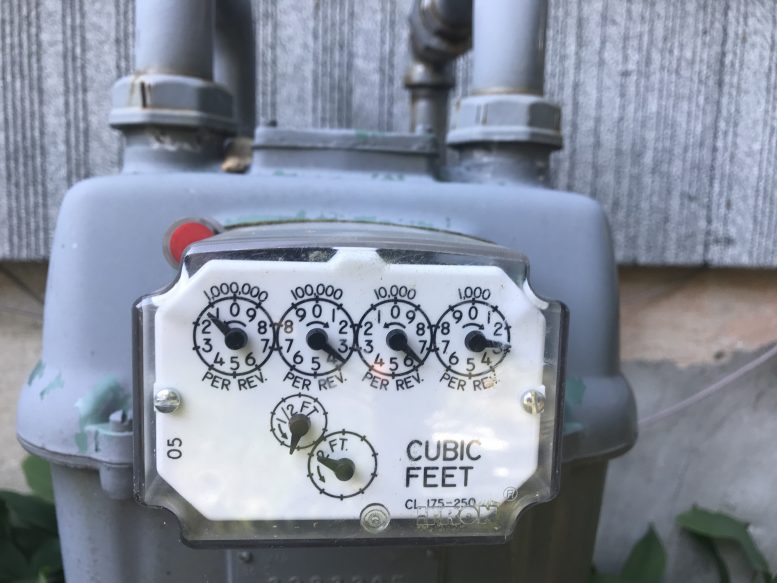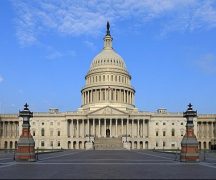An Ohio Senate committee could vote out legislation Tuesday that would shield the natural gas industry from the potential of cities seeking to crack down on fossil fuel emissions.
If passed, House Bill 201 would block any city or county from issuing any law or zoning code that “limits, prohibits, or prevents” people and businesses from obtaining natural gas or propane service. State Rep. Haraz Ghanbari, R-Perrysburg, is a co-sponsor of the bill.
At least 14 states have passed similar preemption bills this year, according to a running count from the National Resources Defense Council, with similar efforts underway in another five.
A small but growing list of progressive cities around the U.S. have passed legislation banning new buildings from obtaining natural gas hookups, an effort to cut down on greenhouse gas emissions that contribute to climate change.
No Ohio cities have joined in, although some (including Cincinnati, Lakewood, and Cleveland) have passed resolutions establishing goals of becoming carbon neutral in the coming years.
About two in three Ohio households use natural gas for heat, far more than electricity (25%), propane (5%), or other sources, according to U.S. Census data compiled by the Legislative Service Commission, which conducts policy analysis for lawmakers.
The House passed the bill in mid-May on a 65-32 vote, with all Republicans and two Democrats in support.
Supporters say the legislation preserves consumers’ rights of choice as to the energy they purchase. Also, they say allowing cities or counties to restrict natural gas development would create a labyrinth of local regulations for the industry to work around.
“Limiting energy choice would effectively be forcing businesses and homeowners to replace the appliances they want to use — for example, grills, hot water heaters, fireplaces, friers and furnaces — with less efficient and more costly ones,” said Stephanie Kromer, an energy lobbyist with the Chamber of Commerce, to lawmakers last month.
The bulk of the political opposition stems from cities and environmental advocates.
The Ohio Municipal League, which represents local governments around the state, said the bill raises issues of local control. In written testimony, it argued the “Home Rule” provision of the state Constitution allows cities to restrict natural gas development as they see fit.
Dan Sawmiller, Ohio energy policy director for the NRDC, said the legislation is part of a national, industry-backed effort to protect consumer demand for natural gas at the environment’s expense.
“It’s clearly not a piece of legislation about what’s best for Ohio,” he said in an interview. “It’s about what’s best for the fossil fuel industry.”
Most critics took aim at HB 201 in the big picture context of Ohio energy policy than the bill by itself.
Several pointed to House Bill 6 from 2019 (now at the center of a public corruption prosecution), which passed massive bailouts to coal and nuclear plants while gutting Ohio’s energy efficiency and renewable energy portfolio standards for utilities.
Others pointed to the Senate’s 20-13 vote June 3 to pass legislation that gives local governments new, unique abilities to nix wind and solar projects.
Sen. Matt Dolan, R-Chagrin Falls, commented on the apparent discord at a hearing on HB 201 last month.
“This is a bill that’s telling local governments they can’t ban a particular energy source [gas], and we just had discussions on a bill that expressly tells governments you can ban an energy source [wind and solar],” he said.
Senate Energy Chairman Rob McColley, R-Napoleon, who sponsored the wind and solar bill, said Dolan was “comparing apples and oranges.” He made similar comments in an interview earlier this month.
“I think when you’re looking at, for example, a natural gas plant: a natural gas plant is going to be confined within one area, a natural gas plant is not going to affect nearly as many acres in most places as these solar and wind projects are. They’re not as transformative, and they’re not being put primarily in residential areas in rural parts of the state,” he said.
Senate President Matt Huffman, R-Lima, said to reporters earlier this month that wind and solar play such a small role in Ohio’s energy mix that they’re not “deserving” of the legal treatment coal or gas receive. Local officials currently have no ability to kill wind or solar developments.
HB 201 is scheduled for a possible committee vote Tuesday and could make it to the floor for a full vote this week, pending the whims of Senate leadership, according to a Senate spokesman.
If passed, the legislation would go to Gov. Mike DeWine for approval or veto. A DeWine spokesman did not respond to an inquiry.
***
Also from Ohio Capital Journal:
Millions paid out to Ohioans who were wrongfully convicted, imprisoned
The state of Ohio will pay a Cleveland man nearly half a million dollars as compensation for wrongly imprisoning him for nearly two decades.
Anthony Lemons will receive $491,000 for the 17 years he spent in prison following a wrongful conviction for murder in 1995.
Lemons is among a growing list of exonerated former prisoners who are compensated for the unjust years spent behind bars. Nearly $5 million has been paid out to eight such Ohioans since the beginning of 2020.
The payment to Lemons caps off a decades-long effort to achieve justice in a case which involved prosecutorial misconduct and unreliable evidence. READ MORE
Ohio taxpayers again footing the bill for grant project aiding Amazon
The Ohio Senate wants the state to begin “asset testing” for food stamp assistance to ensure government aid only goes to those who truly need it.
Meanwhile, Ohio lawmakers agreed Monday to spend $1.5 million in taxpayer funds for an expansion project benefitting one of the most profitable corporations in the world.
Lawmakers on the Ohio Controlling Board once again approved a grant that will assist Amazon with opening a new warehouse, this one in the city of Union near the Dayton airport. The $1.5 million grant will pay for the widening of two roadways and the improvement of several intersections next to a new fulfillment center.
Roadwork Development Grants like this are meant to “support the expansion or attraction of businesses,” the funding request states. This project will help Union accommodate the expected increase in freight and employee traffic.
The fulfillment center was announced last month with plans to create 1,500 jobs paying at least $15 per hour, the Dayton Daily News reported. READ MORE
Ohio to use Rescue Plan education dollars for crisis preparation, combatting student drop-off
The Ohio Department of Education has submitted their plans for federal education funding, which shows a drop in enrollment throughout the state and stakeholder demands for better preparations for “future learning disruptions.”
The U.S. Office of Elementary & Secondary Education awarded states funding as part of the American Rescue Plan’s Elementary and Secondary School Emergency Relief (ESSER). Ohio was allotted $4.4 billion under the plan, two-thirds of which it received on March 24 of this year.
To receive the other piece of the funding, states had to submit a plan for the funding by June 7, including impacts the pandemic had on the state’s education system.
The ODE held numerous meetings throughout the month of May to develop the state plan before submitting it to the U.S. Department of Education. Two of the meetings were specifically with stakeholders, along with others for state school administration leadership, community school sponsors and education data professionals. READ MORE





